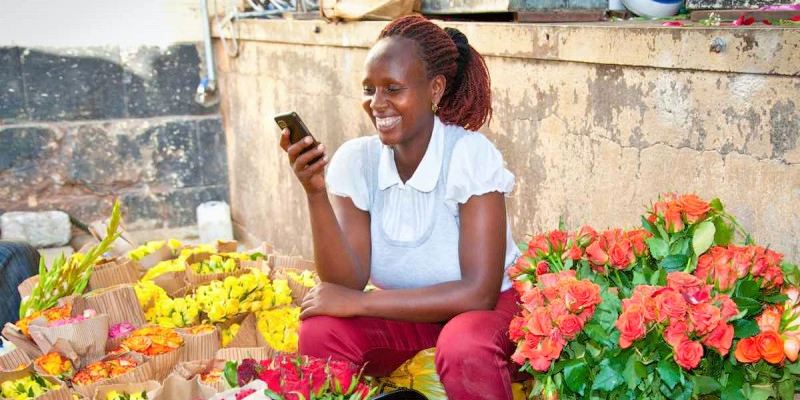What were the most popular internet searches during the pandemic? And why is free mobile internet access on top?
To say that 2020 was a tough year for billions of people is an understatement. With jobs lost, money short, stress high, and vital information needed every day, more people are seeking low cost or free mobile internet access. But outside of public wifi hotspots, is free mobile internet easy to find?
In countries with newer mobile markets especially, more people are asking for more free or low-cost connectivity. In Brazil for example, the top mobile search keyword in mid 2020 was “Internet gratis.” or free Internet. And in South Africa, the most frequently asked question was “How to get free data?”
This’s according mobile services company Upstream Systems — one of a small but growing army of advert-supported internet service providers. The company’s online Zero-D platform allows mobile carriers to offer free, ad-funded access to essential internet services when customers use up their mobile data limits.
What people are searching for
Upstream recently shared some of its customers’ top mobile searches during the pandemic — and some might surprise you. When looking at mobile online activity from April to June in Brazil and South Africa for example, the three most frequent online queries in South Africa were “How to get free data?”, closely followed by “What is coronavirus?” and “When are schools opening?”
In Brazil, a whopping 49 percent of all 2020 online search queries were related to free internet access. Even before the pandemic, searches for “internet gratis” in Brazil hovered at around 37 percent of all online search queries — still an astonishing number in any year.
Besides free mobile internet, Zero-D is also a news portal. So in addition to looking search data, the company also looks at the number of news articles its users visit in various categories, such as health, entertainment, sports and politics. In both South Africa and Brazil, health become the number one topic of 2020, totaling around 28 percent of all articles read. That’s a huge jump from just 5 percent before the pandemic.
Online entertainment as stress relief
With so many millions of us still quarantining or just feeling stressed, people continue to seek out entertaining distractions. To that end, searches and articles about gaming, video streaming, popular internet memes, and other forms of online entertainment have been on the rise.
While health, coronavirus and free data topped both search queries and news headlines, entertainment was still the number one overall mobile search category, says Upstream.
In Brazil for example, entertainment topics totaled 22 percent of all mobile web searches, and almost 20 percent in South Africa. In Brazil reality TV topped the list of entertainment category searches, with “Big Brother Brazil” in the top five keywords.
In South Africa, “games” was 2020’s number one entertainment keyword, accounting for 11 percent of total searches. In comparison, all keyword searches related to videos accounted for 20 percent, and all music topics were 18 percent of searches.
And if you’re curious, Upstream reports that the most searched music stars were South Africa’s Kabza De Small, Nasty C and AKA, plus international names like Nicki Minaj and Cardi B.
Live sports searches took a time-out
Due to the lack of live sporting events during much of the pandemic, mobile searches and article reads about sports sadly dropped down to sixth place. Even football (soccer) — which is synonymous with Brazil, accounted for only 2 percent of internet searches from April to June, says Upstream.
It’s no surprise then that with the lack of live sports, online and mobile sports betting also took a hit. Many big betting fans took their bets to e-sports or other wagers that are pandemic-proof. But as live sports are returning albeit with less live fans allowed, the betting action is now back.
In many African countries sports fans routinely use their mobiles to place bets, thanks to popular mobile money services like M-Pesa. These transactions are simple as long as you know the paybill number to enter. If you’re in Kenya for example, it’s now easy to find out the 22Bet Kenya paybill number and get rolling.
An internet still divided
All of this highlights the demand for strong, low-cost or free mobile internet access. And it shows how for people in areas with poorer economies and networks, the “digital divide” is still a real issue.
On one hand, countries with older mobile networks are now turning their focus to higher-quality 5G mobile technology. On the other hand, newer mobile markets such as in Africa and South America are still trying to put in place basic and sustainable mobile internet access in the face of less infrastructure and high costs.
While the pandemic highlighted our growing digital and mobile divides, it also sped up demand for reliable, affordable or free mobile internet access. Even after we can safely leave our homes and return to more normal lives, more of us will continue to spend more time online — for work, school, shopping, or just entertainment.
With that in mind, it’s important to support the lawmakers and technology innovators who are working to make that happen for us.





